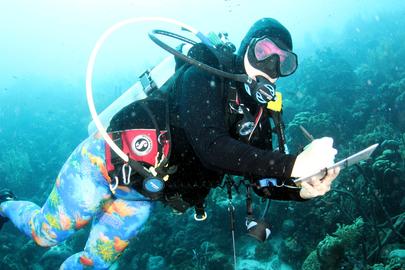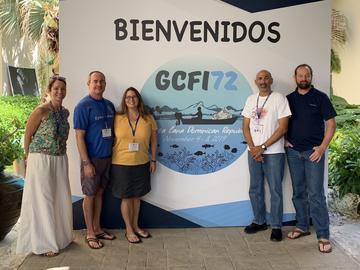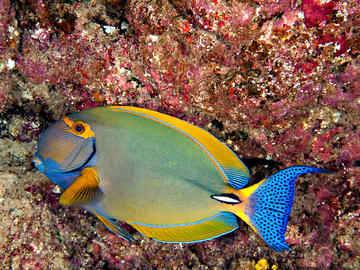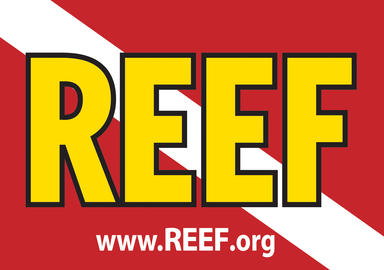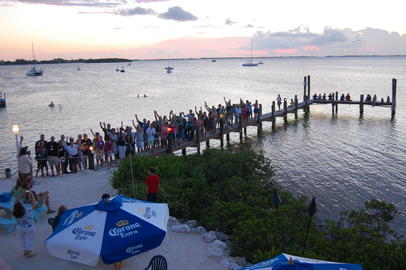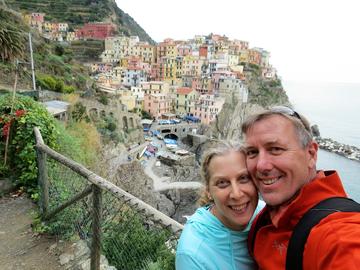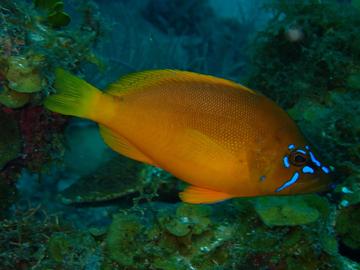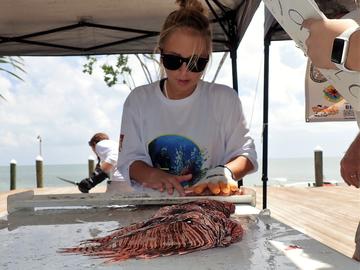We are excited to share that REEF’s Amy Lee was awarded the Diving Equipment & Marketing Association (DEMA)'s Wave Makers award for 2019 last weekend at the DEMA Show in Orlando, Florida. She was selected for this early career award for the impact she is having through conservation and education initiatives in the dive industry. Amy is REEF’s Trips Program and Communications Manager and has been part of our staff team since 2015. Through all aspects of her work, Amy strives to merge her passions for diving, communication, science, and travel.
REEF members are the heart of our grassroots marine conservation programs. A diverse community of divers, snorkelers, and ocean enthusiasts support our mission to conserve marine environments worldwide.
REEF staff and partners just returned from the annual Gulf and Caribbean Fisheries Institute (GCFI) conference, held this year in the Dominican Republic. REEF’s programs and data were represented to the GCFI community by REEF Director of Science, Christy Pattengill-Semmens, and REEF Invasive Species Program Manager, Alli Candelmo, as well as our partners from Scripps Institute of Oceanography (Brice Semmens), Oregon State University (Scott and Selina Heppell), and Cayman Island Department of Environment (Bradley Johnson).
Who doesn't love Surgeonfish?
They're big and easy to see underwater, colorful, and plentiful in the Pacific Ocean. So consider this a pre-Thanksgiving treat from us to you - an entire Fishinar devoted to these oval-shaped beauties, taught by REEF Director of Science, Dr. Christy Semmens. Tune in on Tuesday, Nov. 19 at 8pm Eastern Time.
They've worked hard to move up a level - with a combination of submitting surveys AND passing a fish ID test - so let's give a big shout out to all of these fine citizen scientists who have advanced recently! Volunteer surveyors move through Novice and Expert Levels and their submitted survey data is categorized into these levels.
Want to know more? Check out this page: https://www.REEF.org/REEFs-experience-levels
California (CAL/PAC)
REEF is seeking to hire a full time REEF Trips Program Manager. The position is based at REEF’s Key Largo, Florida (US) campus, and is available for an immediate start. The REEF Trips Program Manager executes REEF’s Field Survey Trip Program, a long-standing eco-travel program that supports REEF’s mission to engage and educate divers and snorkelers in citizen science activities. For complete details, visit www.REEF.org/jobs.
REEF Fest is just ten days away! Sponsored by Capital Bank Foundation, REEF Fest is an annual celebration of marine conservation held in Key Largo, Florida, on Oct. 17-20. The event features diving, ocean-themed seminars, and social events. REEF Fest is open to the public, and most events are free to attend. To see the complete schedule, visit www.REEF.org/REEFfest.
REEF members are the heart of our grassroots marine conservation programs. A diverse community of divers, snorkelers, and ocean enthusiasts support our mission to conserve marine environments worldwide.
At the end of the August, ten REEF citizen scientists traveled to Little Corn Island, a tiny, remote stretch of land in the Caribbean, located about 75 miles northeast of mainland Nicaragua. This goal of this Field Survey Trip was to collect and report data about the fish populations in this infrequently dived and visited area. There is very little data available about the marine life inhabiting Little Corn Island, and our volunteer divers were excited to find many interesting species, color variations and range extensions in the area.
REEF’s 2019 Lionfish Derby Series ended on Sunday, Sept. 15 with the 10th Annual Upper Keys Lionfish Derby and Festival, hosted by Postcard Inn Beach Resort & Marina. Throughout the weekend, 28 derby competitors scoured the reefs and brought in a total of 1,263 lionfish, a new record for REEF Lionfish Derbies in the Florida Keys. Nine teams competed for most, largest, and smallest lionfish in this year’s Upper Keys Derby, vying for more than $4,400 in cash and prizes.


